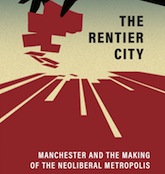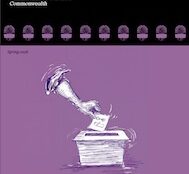As a church minister, CHRIS WILSON at least knows “the boss” is OK, although “the middle management can be a real problem”. Clergy need trade unions as much as any other workers, he says.
Many years ago, I had a church ministry at Great Yarmouth. During my six years there I was approached by members of the building workers’ union, UCATT (now part of Unite), who were involved in an industrial dispute with a local council. Strike action was planned and they wanted to use our church hall as a base as it was close to their picket line.
 I was delighted to help. The union used the hall at no charge and members of the church family took bacon butties and tea to the picket line. The support was much appreciated, but I had a conversation with one of the strikers that I have never forgotten.
I was delighted to help. The union used the hall at no charge and members of the church family took bacon butties and tea to the picket line. The support was much appreciated, but I had a conversation with one of the strikers that I have never forgotten.
I told him that I had always been a trade unionist and was still one, even as a church minister. The striker was astounded. “But you work for the church,” he said. “Why on Earth, do you need to be in a union?” “Well, the boss is great,” I replied. “But the middle-management can be a real problem.”
I have had countless similar conversations since then with my secular trade union sisters and brothers. They always doubt our need for a union. But faith workers are workers too. If anything, our need for a union is even more pressing, as ministry staff face many insecurities that other workers would be shocked at.
Lone working is common (ministers tend to work alone late into the night) and we often deal with vulnerable people, including those with problems of addiction who turn to churches for money and then to violence when it is isn’t forthcoming.
Sexual harassment is an issue, too. I know of female colleagues who have faced unwelcome attention and harassment from people they minister to and those in the community they serve.
And bullying can be a real problem from church authorities, often well-meaning lay folk have little or no understanding of their responsibilities under the law, or their duty of care. Indeed, I know of churches who forget to pay their clergy, and of those who don’t pass on tax and national insurance, while some make completely unreasonable requests.
Basic rights
Ministers can also be victims of ungrounded allegations. Accusations of abuse that are justified and based on evidence are one thing – they rightly deserve proper investigation and speedy resolution. But an allegation without evidence can shred someone’s reputation in an instant and drive them – in the depths of their isolation – into deep despair. As the nature of allegations is rarely disclosed, a minor infringement can often be mistaken for a case of serious abuse. Tongues wag, fingers point and loved vocations are destroyed in a moment.
What’s more, faith workers are still contesting basic employment rights that others take for granted. Some denominations insist we are not workers at all but “office holders”, so the normal rights and safeguards don’t apply.
Working life for clergy can be precarious. The job often comes with a house, so if you lose the pulpit, you not only lose your income but your home too, and can soon find yourself on the street, maybe with your loved ones as well.
To be fair, there is good practice in many denominations. Some are trying very hard to get it right. In my 22 years as a minister I have been blessed by caring congregations that have been a joy and a privilege to serve. But that is not the case everywhere. I know of one denomination which still refuses its workers the right to be accompanied by a trade union representative if they are under investigation.
So yes, faith workers do need unions. They need them to offer models of good practice; to help churches (and other faith groups) get the best from those who serve them; to offer advice and guidance, and sometimes legal support, when faith workers are frightened and don’t know where to go.
I love ministry. It is a wonderful vocation, full of joys and sometimes sorrows. But it is still work and I am still a worker. I am lucky that my union, Community, has a faith worker’s branch that we continue to build. We may not be taking strike action any time soon, but many of us do our best to support those unions that do.
So I appeal to my secular trade union sisters and brothers: Don’t turn your back on people of faith. Remember, we are workers too. Solidarity works both ways.
—-
The Reverend Chris Wilson has been a trade unionist for more than 40 years. He is a Christian socialist, a member of the ILP and secretary of Community’s faith workers’ branch.



8 September 2025
I read with great interest this piece from Chris Wilson. What Chris says about the pressures of church ministry is so true. When the middle management kicks off and wants you out, you could find yourself jobless and homeless. Senior managers can be incompetent and heartless.
In Bradford diocese 30 years ago, I was hounded out of a post because I refused to be bullied and controlled by the vicar in the neighbouring parish. When you receive the letter informing you that you must leave the parsonage house within a certain period, you find yourself in a very vulnerable place. Fortunately, I found another post.
Chris draws our attention to ungrounded allegations that can be made against ministers of religion. When I was in Cornwall, I was accused of neglecting my parochial duties during the pandemic. Chris is right, the clergy need trade unions.
3 September 2025
Thanks Ernie for your very kind comments. Workers are workers whatever they do for a living (or calling), and anyone who works is deserving of respect as well as a proper understanding of their lived reality by their trade union.
2 September 2025
What a lovely sentiment and such a refreshing and enlightening evaluation of the work of a Christian minister. It offers an eye-opening window on their working lives.
The words resonated deeply with me and prompted reflection on something I confess I hadn’t considered before: that faith workers, too, face the same workplace challenges — unfairness, elitism, even bullying — that many of us encounter in secular roles.
These insights remind me that behind the white collar is a human being navigating the same systems and pressures as the rest of us. It’s easy to assume that ministers are somehow shielded from the everyday struggles of working life, but Chris’s article gently dismantled that myth with compassion and clarity. I found it educational, enlightening and humbling.
I have found it deeply depressing that the notion of fairness, equality and a living wage seems to be an alien concept in today’s society, under governments of all colours, where the need for food banks is deemed normal, even the sign of a good society, when they are anything but.
As someone who has long advocated for fair treatment and accountability across public services and the world of work, I was particularly struck by how the Reverend’s experience intersects with the broader need for trade unionism. The idea that solidarity and support should extend to the pulpit is something few of us will have considered or ever thought necessary.
So, thank you Chris Wilson for an unusual perspective on the world of work. You are a good man, as are most people working to spread the Christian faith.